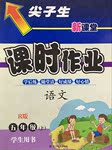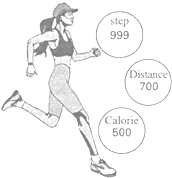题目内容
7.As Internet users become more dependent on the Internet to store information,are people remembering less?If you know your computer will save information,why store it in your own personal memory,your brain?Experts are wondering if the Internet is changing what we remember and how.In a recent study,Professor Betsy Sparrow conducted some experiments.She and her research team wanted to know the Internet is changing memory.In the first experiment,they gave people 40unimportant facts to type into a computer.The first group of people understood that the computer would save the information.The second group understood that the computer would not save it.Later,the second group remembered the information better.People in the first group knew they could find the information again,so they did not try to remember it.
In another experiment,the researchers gave people facts to remember,and told them where to find the information on the computer.The information was in a specific computer folder (文件夹).Surprisingly,people later remember the folder location (位置) better than the facts.When people use the Internet,they do not remember the information.Rather,they remember how to find it.This is called"transactive memory (交互记忆)"
According to Sparrow,we are not becoming people with poor memories as a result of the Internet.Instead,computer users are developing stronger transactive memories; that is,people are learning how to organize huge quantities of information so that they are able to access(获取) it at a later date.This doesn't mean we are becoming either more or less intelligent,but there is no doubt that the way we use memory is changing.
58.The passage begins with two questions toA.
A.introduce the main topic
B.show the author's altitude
C.describe how to use the Interne.
D.explain how to store information
59.What can we learn about the first experiment?C
A.Sparrow's team typed the information into a computer.
B.The two groups remembered the information equally well.
C.The first group did not try to remember the formation.
D.The second group did not understand the information.
60.In transactive memory,peopleC.
A.keep the information in mind
B.change the quantity of information
C.remember how to find the information
D.organize information like a computer
61.What is the effect of the Internet according to Sparrow's research?B
A.We are becoming more intelligent.
B.We are using memory differently.
C.We have poorer memories than before.
D.We need a better way to get information.
分析 文章主要讲的是互联网给人类的记忆带来的影响.互联网使用者越来越依赖互联网来储存信息,人们这样做是否会丧失记忆事物的能力呢?专家怀疑互联网可能正在改变人们的记忆内容和方式.
解答 58.A.推理判断题.根据文章第一段的句子"Experts are wondering if the Internet is changing what we remember and how."可知这篇文章用两个问题开始来介绍主题.故选A.
59.C.推理判断题.根据文章第二段的句子"People in the first group knew they could find the information again,so they did not try to remember it."可知第一组的人没有努力去记这些信息.故选C.
60.C.推理判断题.根据文章第三段的句子"When people use the Internet,they do not remember the information.Rather,they remember how to find it.This is called"transactive memory (交互记忆)""可知在交互记忆中人们记住怎么找到信息.故选C.
61.B.推理判断题.根据文章最后一段的句子"This doesn't mean we are becoming either more or less intelligent,but there is no doubt that the way we use memory is changing."可知Sparrow研究中表明互联网的影响是我们使用记忆的方法不同了.故选B.
点评 考察学生的细节理解和推理判断能力,做细节理解题时一定要找到文章中的原句,和题干进行比较,再做出正确的选择.在做推理判断题不要以个人的主观想象代替文章的事实,要根据文章事实进行合乎逻辑的推理判断.

 尖子生新课堂课时作业系列答案
尖子生新课堂课时作业系列答案 英才计划同步课时高效训练系列答案
英才计划同步课时高效训练系列答案_______,but not during my lunch break.( )
| A. | I'm sorry | B. | Anytime | C. | Certainly | D. | Go ahead |
 Anybody who's noticed so many sweaty Sunday-morning photos on the Internet must think that marathons have recently regained popularity.According to Running USA,an organization that tracks the sport's growth,52percent of runners today track themselves with some sort of GPS-enabled device,like a smartphone or a fitness tracker.This statistic has likely played a role in running's growing appeal--the easily available tracking information has attracted people to the sport,and kept them going,for it's possible for anyone to see in real time how it's affecting their bodias.
Anybody who's noticed so many sweaty Sunday-morning photos on the Internet must think that marathons have recently regained popularity.According to Running USA,an organization that tracks the sport's growth,52percent of runners today track themselves with some sort of GPS-enabled device,like a smartphone or a fitness tracker.This statistic has likely played a role in running's growing appeal--the easily available tracking information has attracted people to the sport,and kept them going,for it's possible for anyone to see in real time how it's affecting their bodias.